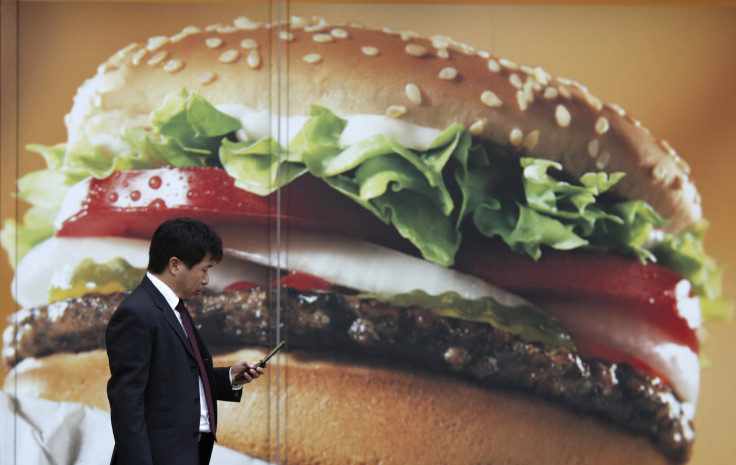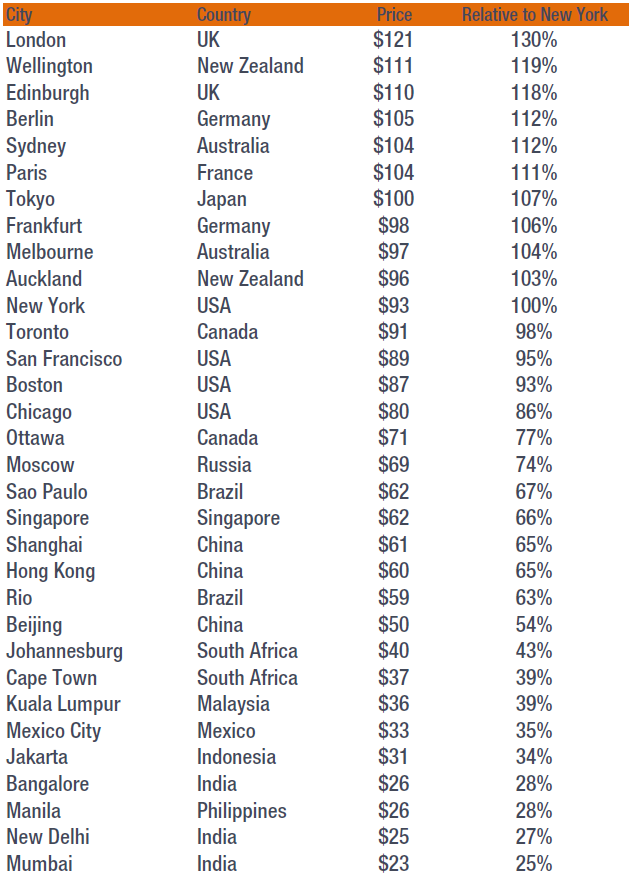'Cheap Date Index' 2014: Deutsche Bank Shows Where You Can Save The Most On Dates Globally

Depending on where you live, a “cheap” date may not be all that inexpensive.
According to the Deutsche Bank AG (NYSE:DB) “Cheap Date Index,” which compares the price of a date that includes cab rides, McDonald’s burgers, soft drinks, a pair of movie tickets and a round of beers in various metropolitan areas, it may not be affordable to take someone out in certain cities at all.
The index compares 32 major cities throughout the world, pricing out a “cheap date” in U.S. dollars and using New York City as a benchmark, at $93.

London took the top spot on the index at $121, which is 130 percent more than New York, making it a not particularly cheap city for dating.
On the other end of the “Cheap Date Index,” Mumbai, India, came out on top with the total price of $23, or only 25 percent of what a similar cheap date costs in New York.
In between London and Mumbai are several cities that fell somewhere in the middle of the index. Of those sampled in the “Cheap Date Index,” Chicago was the cheapest, at $80.
If you’re looking for other economical cities for a cheap date, Hong Kong and Rio may seem a bit more reasonable at total prices of $60 and $59, respectively.
According to FT Alphaville, the 2014 version of the “cheap date index” differs from last year’s index, which included a bouquet of roses in its list of cheap date items.
And while McDonald’s may not be the ideal place for a date, cheap or not, economists have often used the chain’s menu items throughout the world as a way to measure purchasing-power parity among various currencies and countries. “The Big Mac Index,” invented by the Economist in 1986, is one example of the ways economists have used the chain’s menu items as a benchmark for consumer prices.
Compared to "The Big Mac Index," the “Cheap Date Index” has only been around since 2012, and its various parameters have changed over the course of its young life.
"With the cheap date index, what we were trying to work out is a proxy for the cost of living without taking real estate costs directly in there," Sanjeev Sanyal, a global strategist at Deutsche Bank, told CNBC.
© Copyright IBTimes 2025. All rights reserved.






















